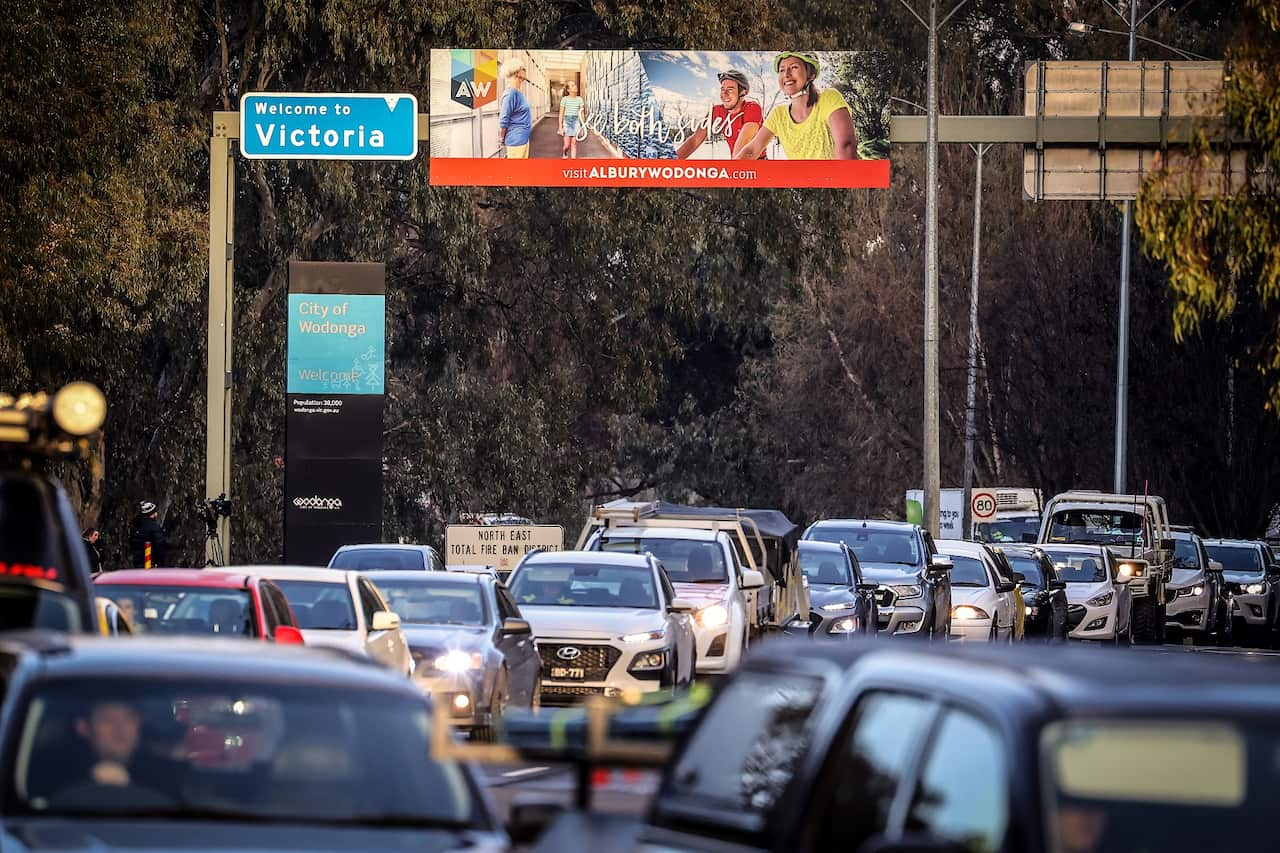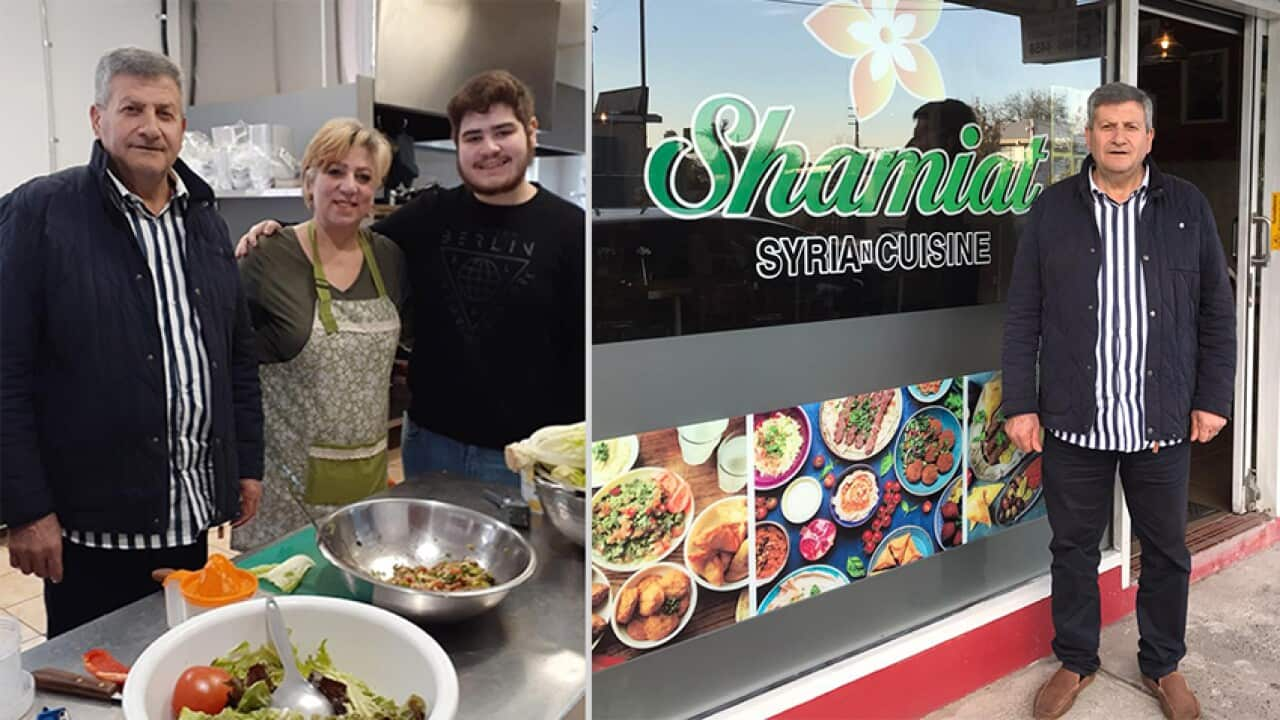The NSW-Victoria border was closed for the first time in 100 years on Tuesday as part of an effort to stop Melbourne’s coronavirus outbreak spreading further.
NSW Premier Gladys Berejiklian flagged the possibility of imposing harder restrictions on border towns on Wednesday, saying the probability of such a move was “extremely high”.
But on Thursday, she said  Despite the premier’s stance, businesses who rely on tourists passing through the border towns, or a flow of local regulars, may be the first to suffer due to the closure.
Despite the premier’s stance, businesses who rely on tourists passing through the border towns, or a flow of local regulars, may be the first to suffer due to the closure.

Cars sit in a line at the Victoria-NSW border near a police checkpoint in Albury. Source: Getty Images
Lebanese-Australian Wassim Saliba is in a unique position. He is a resident of the NSW town of Albury but runs a restaurant, La Maison, in Wodonga, across the border in Victoria.
Despite being able to cross the border under exemption rules for NSW residents living within 50km of the border, he fears that further measures may hinder his accessibility.
“There is a lot of people like me, who live and work across the border and it is not clear for us yet. How will we carry on with our lives?” he says.
His restaurant is situated along the Lincoln Causeway, one of the busiest border crossings between the states. The building itself is heritage listed and originally operated as a customs office between the states before Federation.
He says the authorities informed him that traffic at the state’s border was redirected to the causeway, which has resulted in a large build-up directly in front of his restaurant.
He says the traffic is blocking regular customers from accessing the restaurant.
“I expect heavy losses since they announced the decision. Instead of receiving bookings, I receive cancellations, and instead of having a full guest list next weekend, I now consider whether opening the restaurant is even worth it,” he says. He decided to close his restaurant for on the first day of the closure, in order to get more clarity around the situation.
He decided to close his restaurant for on the first day of the closure, in order to get more clarity around the situation.

Victorian Premier Daniel Andrews and NSW premier Gladys Berejiklian Source: AAP
“There is still a lot of unanswered questions.
“There is no understanding yet on how this operation will be run, costumers call to ask if they crossed the border to have a meal or a coffee, will they be allowed back to NSW?
“It is all unclear if you crossed for a coffee, will you be stopped and searched in your way back.”
Despite his financial fears, Mr Saliba believes the border closure was a good decision: “It is a shame what is happening now, health is the most important asset, and if some of us have to bear some cost, to contain the outbreak, so be it.”
Ms Berejiklian said Services NSW had already issued 125,000 border crossing permits in just over two days, but warned people against travelling if they didn’t have to.
“Please, if you are living in those border communities, don’t move out of your border communities at this time unless you absolutely have to. This is for your own safety and wellbeing but also for the safety and wellbeing of other residents across both states,” she said.
“And can I also stress to New South Wales residents who might have some interaction or family connections to those border communities … please do not go to those border communities at this stage unless you have to.”
People in Australia must stay at least 1.5 metres away from others. Check your state’s restrictions on gathering limits.
If you are experiencing cold or flu symptoms, stay home and arrange a test by calling your doctor or contact the Coronavirus Health Information Hotline on 1800 020 080.






